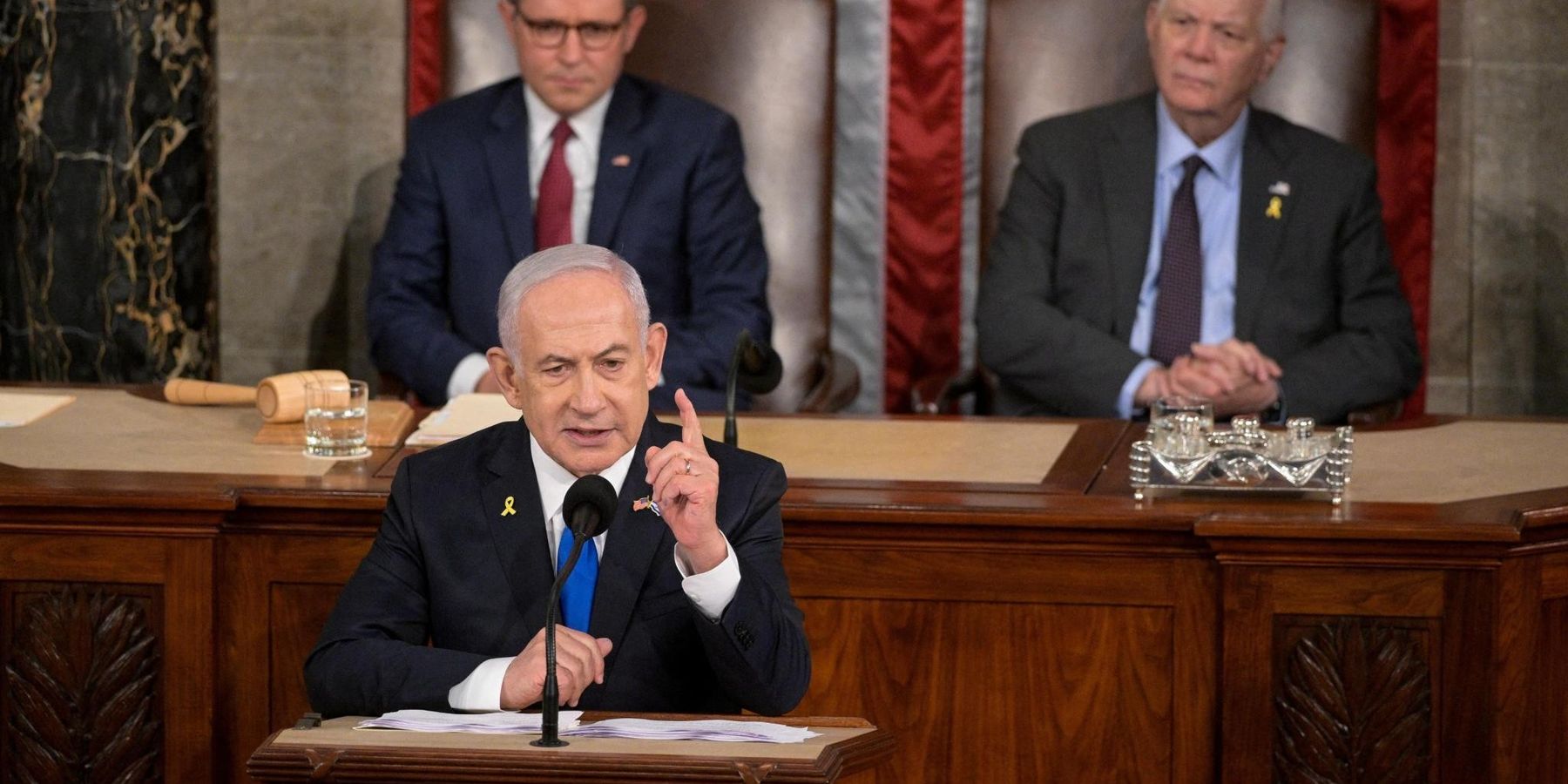UPDATE 1/9: On Thursday, the House voted 243-to-140 — with 45 Democrats joining all Republicans — to support the bill sanctioning the ICC and anyone who has directly engaged in or otherwise aided any effort by the International Criminal Court to investigate, arrest, detain, or prosecute a protected person (in this case Israeli Prime Minister Benjamin Netanyahu). Rep. Thomas Massie (R-Ky.) voted "present."
The upcoming House of Representatives Rules Committee Package is sure to include a section requiring the consideration of a bill that would sanction the International Criminal Court (ICC), therefore shielding Israeli Prime Minister Netanyahu from arrest.
The ICC issued arrest warrants for Netanyahu, as well as former Israeli Defense Minister Yoav Gallant and Hamas leader Ibrahim Al-Masri in November 2024 for their actions in Gaza, alleging war crimes and crimes against humanity. ICC judges said that the Gaza blockade "created conditions of life calculated to bring about the destruction of part of the civilian population in Gaza, which resulted in the death of civilians, including children, due to malnutrition and dehydration.”
A House Resolution introduced by over a dozen House Republicans, titled the”‘Illegitimate Court Counteraction Act” is meant “to impose sanctions with respect to the International Criminal Court engaged in any effort to investigate, arrest, detain, or prosecute any protected person of the United States and its allies.”
The bill found that “The United States and Israel are not parties to the Rome Statute or members of the International Criminal Court (ICC), and therefore the ICC has no legitimacy or jurisdiction over the United States or Israel.” Because of the lack of jurisdiction, the co-sponsors assert, “The ICC’s actions against Israel, including the preliminary examination and investigation of Israel and issuance of arrest warrants against Israeli officials, are illegitimate and baseless and create a damaging precedent that threatens the United States, Israel, and all United States partners who have not consented to the ICC’s jurisdiction.”
The bill further states that “if the International Criminal Court is engaging in any attempt to investigate, arrest, detain, or prosecute any protected person,” the President shall then impose sanctions. These sanctions can be placed on any “foreign person” who directly aided or engaged in efforts to assist the ICC in investigating, arresting, detaining, or prosecuting a protected person. This could include financial or material assistance.
Despite calling the arrest warrant for Netanyahu “outrageous,” President Biden had previously opposed sanctioning the ICC for seeking arrest warrants against Benjamin Netanyahu. However, President Trump notably approved sanctions in September 2020 on members of the ICC who were “involved in the ICC’s efforts to investigate US personnel.”
The ICC has no actual enforcement authorities, leaving detention and arrest to the 125 members countries that are party to the Rome convention. But it is fully voluntary. It appears, according to the text, that the bill is authorizing Congress to impose sanctions on any foreign actor (who could be from a partner or allied country) and their families if they helped to detain Netanayhu on behalf of the ICC warrant. What this would look like in practice is unclear. Ireland and the Netherlands (a NATO alliance member) have both indicated that the Israeli prime minister would be arrested if he set foot on their soil.
The decision to include H.R. 23 in the Rules package is not without its opponents. Congressman Thomas Massie (R-Ky) dissented on X: “The United States is a sovereign country, so I don’t assign any credibility to decisions of the International Criminal Court. But how did a bill to protect Netanyahu make it into the House rules package to be voted on immediately after the Speaker vote? Where are our priorities?!” His office declined to comment further when RS inquired.
It is important to note that the package cannot be voted on until House leadership appoints the committee, which may come with additional challenges, as previous speaker Kevin McCarthy was forced to appoint three Freedom Caucus members to the last Rules Committee, and these three members regularly joined Democrats to vote down legislation submitted by Republican leadership.
Reports indicate that the appointments will likely happen by this Friday.- Blinken grilled for maintaining Trump's sanctions on war crimes court ›
- House votes to sanction ICC for case against Israeli leaders ›
- Who should take credit for the ceasefire? Netanyahu. | Responsible Statecraft ›
- The Senate blocks “poorly crafted” ICC sanctions bill | Responsible Statecraft ›
- EU hypocrisy on parade as Netanyahu goes to Hungary without a peep | Responsible Statecraft ›
















